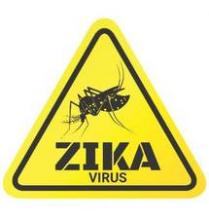A new analysis of the Zika virus outbreak in French Polynesia supports the theory that infection during the first trimester of pregnancy poses the greatest risk of the fetus developing microcephaly.
Researchers examined serological and surveillance data from a Zika outbreak in French Polynesia that lasted from October 2013 to April 2014, and searched medical records to identify cases of microcephaly diagnosed between September 2013 and July 2015. Of 8,750 suspected Zika virus infections, 383 (4.4%) were confirmed in the laboratory. There were a total of eight cases of microcephaly among pregnant women with Zika virus during the study period, including three live births, reported Simon Cauchemez, Ph.D., of Institut Pasteur, Paris, and colleagues.
Of those eight cases, all but one occurred during the four-month period from March 1 to July 10, 2014, leading researchers to suspect that the period of risk was during the first trimester of pregnancy.
Using a mathematical and statistical model that used the first trimester as the period of risk during pregnancy, the risk of microcephaly was 95 cases per 10,000 women infected during the first trimester for a risk ratio of 53.4 (95% CI 6.5-1061.2). The baseline prevalence was two cases per 10,000 neonates.
Though the researchers could not rule out an increased risk of microcephaly in other trimesters, the first trimester risk model was the best fit, they reported (The Lancet. 2016 March 15. doi: 10.1016/S0140-6736(16)00651-6).
The researchers estimated that the risk of microcephaly in the first trimester was about 1%, which is low compared to other viral infections associated with birth defects such as cytomegalovirus or congenital rubella syndrome. But the high incidence of Zika virus in the general population – reaching 66% in French Polynesia at the end of the outbreak – is a cause for concern.
“Although infection with Zika virus is associated with a low fetal risk, it is an important public health issue,” the researchers wrote. “No treatment is available for Zika virus and development of a vaccine will take time. Our findings highlight the need to inform pregnant women and women trying to become pregnant to protect themselves from mosquito bites and avoid travel to affected countries as far as possible.”
The study was supported by the French government, the National Institutes of Health, the AXA Research fund, and the European Union. The researchers reported having no financial disclosures.


